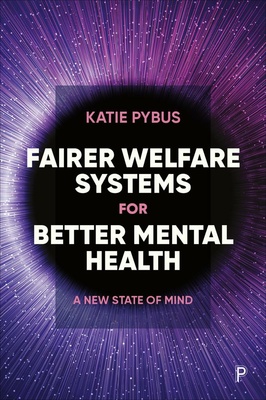Mental health has topped the political and media agenda in recent weeks in the wake of planned changes to health and disability benefits. This has been contextualised by ongoing and sometimes controversial debates about benefit claims made on the basis of mental ill health, some of which have caused understandable concern within organisations that support people with mental health problems.
Recent announcements by the Secretary of State for Work and Pensions set out a series of planned changes to health and disability benefits, including reducing the level of payment for the health component of Universal Credit, an increase in the Standard Allowance and a consultation on changes to eligibility for Personal Independence Payments (PIP). This was followed swiftly by announcements in the Spring statement that the standard allowance would increase by around £14 per week, and there would be a 50 per cent cut in the health component for new claimants followed by a payment freeze.
The government’s own impact statement shows that the measures will leave a further quarter of a million people, including 50,000 children, in relative poverty. This does not include expected financial benefits where people are able to return to work. Yet, the Institute for Fiscal Studies has highlighted that the incentives assumed by the changes could be problematic because they target the people least likely to be able to change their situation through returning to employment because of their health. This could lead to people being trapped in financial hardship with no way out.
A key problem with the proposals is that they do not take account of the well-established evidence on the relationship between poverty and mental ill health. Living on a low income can be stressful because of the financial difficulties it presents, such as debt and food insecurity. And once a mental health problem develops, it is difficult to recover when you are struggling to pay the bills or you are wondering where your next meal is coming from. Based on this evidence, increasing levels of poverty could have the opposite effect on mental health to that which is intended, potentially raising levels of sickness.
While much of the discussion has focused on moving people closer to work, not everybody can work because of their health. It is also worth highlighting that PIP is available to people both in and out of work (at present, around one sixth of PIP claimants are in work). Even if the number of people in work increases, it doesn’t automatically follow that fewer people will be eligible for the benefit. So it seems sensible that, before any cost-cutting measures are put in place, there needs to be greater understanding of the reasons behind any trends towards increasing numbers of people moving onto disability benefits.
Since mental health is the fastest growing reason for social security claims, particularly among younger people, we can perhaps assume that policy makers are hopeful these new plans will reduce the number of mental health-related claims. Yet, this seems unlikely if people are pushed further into financial hardship.
Previous reforms to disability benefits, such as the transition from Disability Living Allowance (DLA) to PIP, have negatively impacted people with mental health problems and have themselves caused additional mental health harms. In addition to this, restrictions and requirements placed on claimants have also had negative impacts on health.
Putting the social security system on a sustainable footing requires more than simply cutting costs. In fact, a recent systematic review focusing on the mental health effects of different social security policies across European countries found that contractionary social security systems tended to worsen population mental health while more generous systems had positive mental health effects and also reduced mental health inequalities.
This suggests that the way we approach social security very much matters for mental health. A system that is working effectively could act as a protective factor and by reducing poverty and the distress associated with it, even potentially decrease demand on overstretched mental health services.
Providing a safety net during times of financial hardship is, after all, what this system was originally set up to do. By creating more humane and compassionate processes, ensuring adequate financial support and removing the negative rhetoric that often frames our national discussion about social security, we could have a transformative impact.
Sustainable change requires a fundamental shift in how we think and talk about our social security system. Rather than seeing social security as a burden, we should see it as an investment that underpins good mental health, both now and into the future.
Katie Pybus is a Lecturer in Mental Health at the University of York and a registered mental health nurse.
 Fairer Welfare Systems for Better Mental Health by Katie Pybus is available on Policy Press for £80.00 here.
Fairer Welfare Systems for Better Mental Health by Katie Pybus is available on Policy Press for £80.00 here.
Follow Transforming Society so we can let you know when new articles publish.
The views and opinions expressed on this blog site are solely those of the original blog post authors and other contributors. These views and opinions do not necessarily represent those of Bristol University Press and/or any/all contributors to this site.
Image credit: Claudio Schwarz via Unsplash


